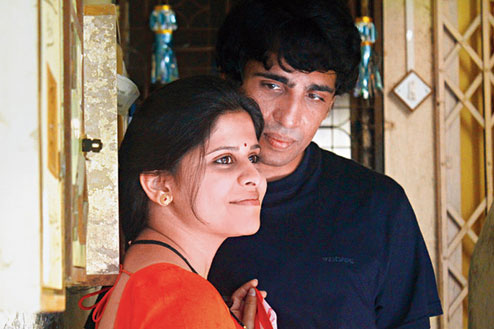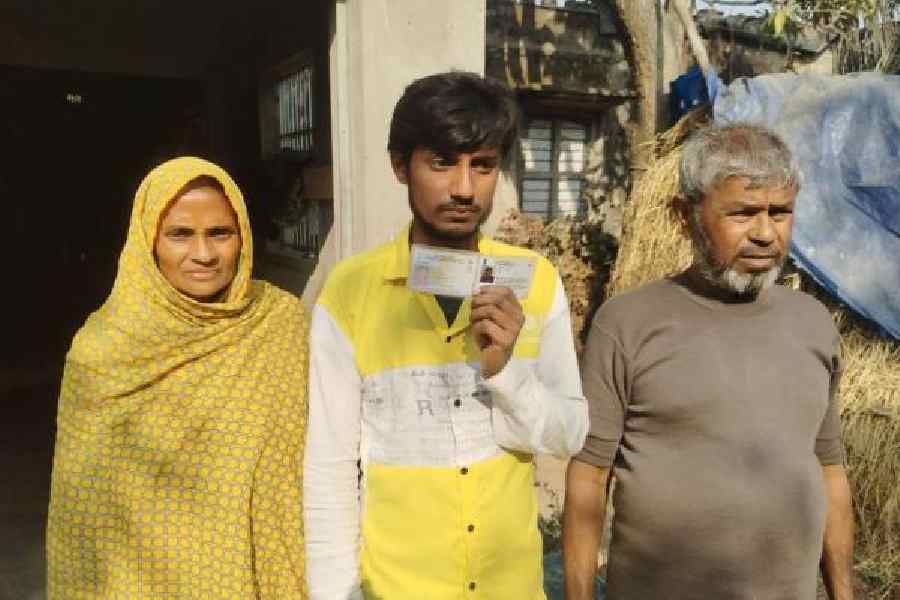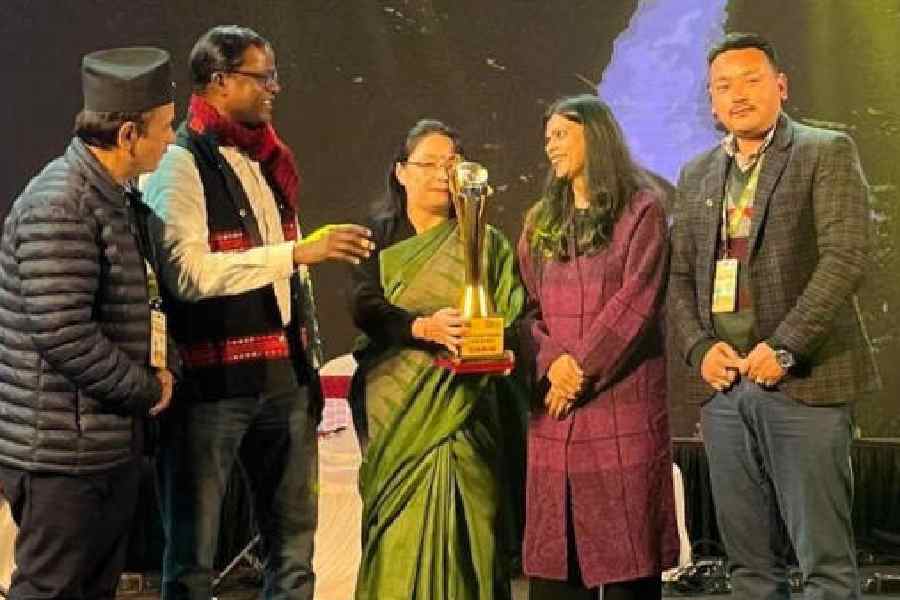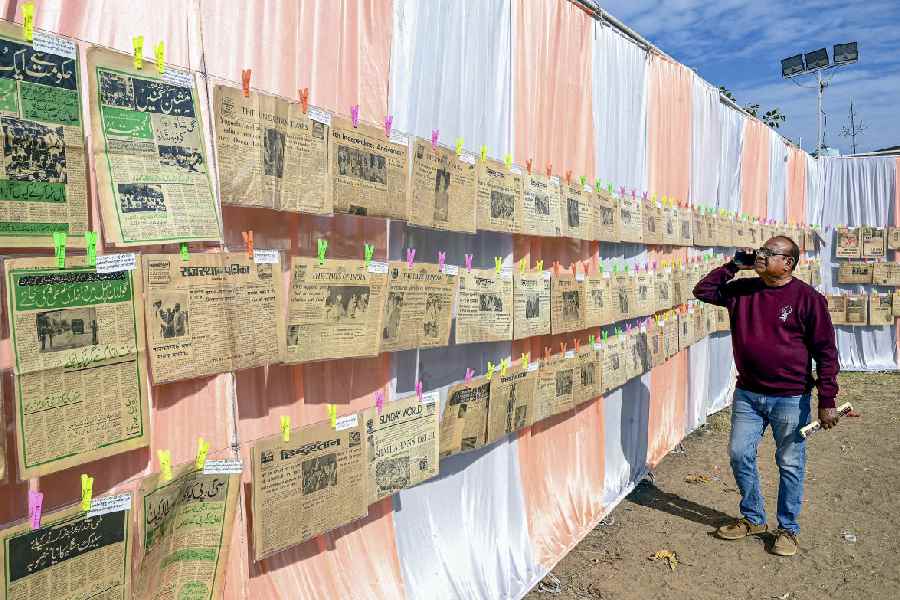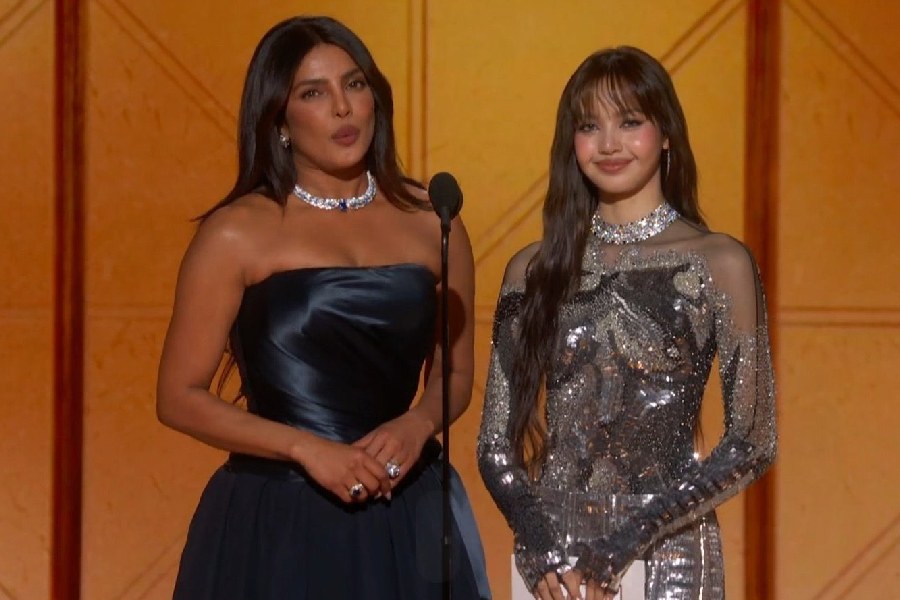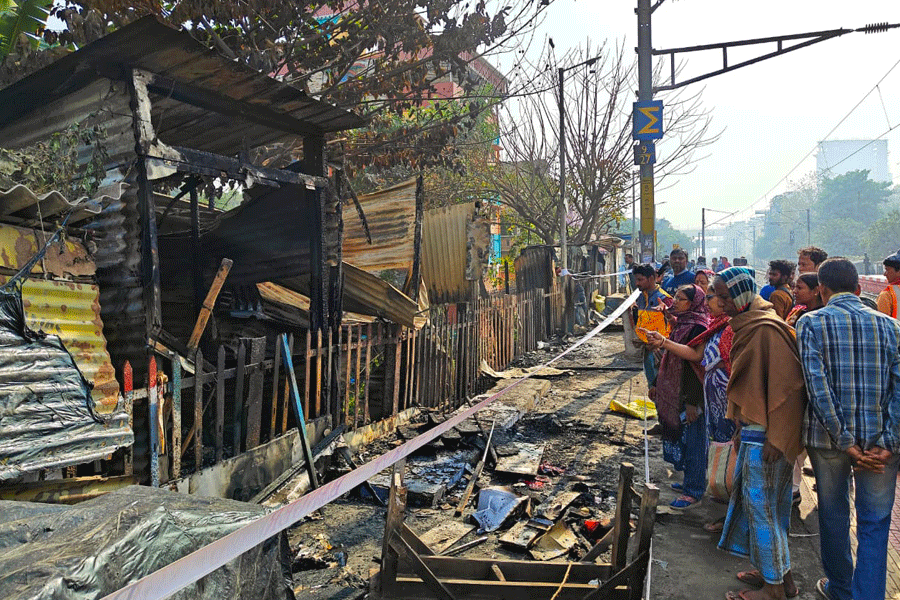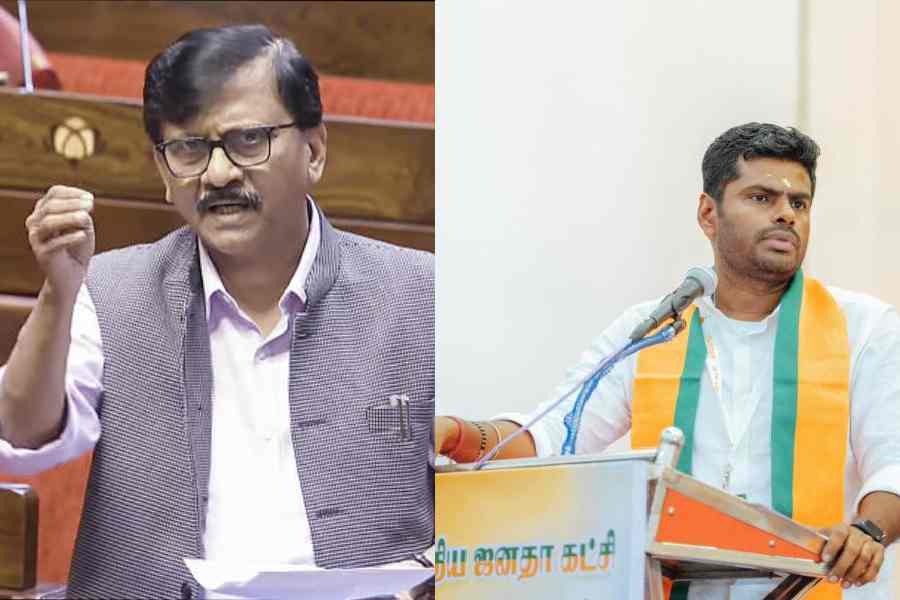People have been calling him to hear Savita Bhabhi’s voice (!) because Hunterrr writer-director Harshavardhan Kulkarni inadvertently gave his own phone number in the film. But we had other things to hear from him. Here’s decoding the film about Mandar (Gulshan Devaiah) and his vaasugiri.

Watching the film at a morning show, one felt there were two kinds of audiences — those who had come to watch Hunterrr hoping that it was a good film, and those who wanted to see some “hot scenes”. Did you set out to make the film for both?
When I set out to write Hunterrr, which was a while back, the only thing that I was apprehensive of: Was I writing a B-grade semi-porn film? This nagging thought constantly discouraged me and at the same time, prodded me on to prove myself wrong and give it a shot. The greatest challenge was to write a respectable film, which could be seen by women and not offend them.
The whole idea was to make a film about a character who looks at women as objects of sexual desire and yet the film was not viewing them in the same lens. Through the film we are looking at Mandar without a moral compass and in the most non-judgemental manner. Even when the trailers were made, we made sure that there was absolutely no skin shown — not that the film has any significant amounts — as we didn’t want to mislead audiences and promise them “hot scenes”. We can’t be held responsible for such audiences that came in hoping for a sleaze fest as we hadn’t promised any. It was not meant for audiences seeking titillation.
How much of the back-and-forth narrative was done at the script stage and how much of it on the edit table?
The story is not plot-heavy and more of a character-driven film, hence the form of telling the story was extremely crucial. The script was conceived with the back-and-forth structure to add curiosity and give this coming-of-age tale some perspective. Contrarily on the edit table, we made the back and forth a little less. We experimented a lot at the editing stage and had more than 50 different cuts of the film. One was completely linear and probably the worst version. So, after experimenting a lot, we went back to the same structure as the film was written in, albeit a little less of the back and forth.
We made just one addition at the editing stage and that was introducing time-stamps as supers every time we made a time jump and that according to me was probably the worst thing we could do. Without it there was a sense of achievement on the part of the viewer to decode where in time the story was, and now with the time-stamps we are kind of robbing that feeling by spoon-feeding everyone.
In the film, you define sex purely as a physical need and never offer Mandar a backstory as to why he is so obsessed with having sex with random women. Did you ever think about giving a psychological reason for his not-so-ordinary actions?
I believe there is enough of that justification throughout the film. The film is Mandar Ponkshe’s journey... his initiation into adolescence. Kids around him at a similar stage in life are as curious, just like him. Even if not all, most of them are exploring their fascination for the opposite sex. Mandar and his ilk get a headstart as they overcome the initial sense of rejection and finally start having flings with girls. While around him, other kids his age are still mustering enough courage to even express their feelings to a girl. His one cousin, Dilip aka Yusuf (Sagar Deshmukh), depicts that section of guys. While Kshitij (Vaibbhav Tatwawdi), the other cousin, is a player who Mandar hero worships, until Kshitij gets a reason to stand up for a girl and falls in love.
Mandar keeps going on, learning new tricks and adding to his repertoire, so to speak, in his journey. Why does he keep at it? The reason being initially it’s a great high, the thrill of the hunt, and secondly because an otherwise ordinary guy like him is being looked up to by his friends as a hero, just because he gets to do things that they just fantasise about.
This continues till he’s in his late 30s, by when his friends have gotten married, have kids and no longer look up to him. They even ask him to settle down. But he’s stuck, as it’s now a habit. Precisely when he verbalises this affliction that he’s still at it as he thinks sex is a physical need just as essential and natural as clearing his bowels! Its an ironical state of being that is being conveyed through humour, but it is a rotten state in the end.
For a film so brave why did it have to end with a whimper — the very conventional settling down finale of love cleansing every vice in the system? Did you ever consider a different ending where Mandar just continues doing what he does best — vaasugiri?
No, not at all. The whole point of the film was to explore the life of a vaasu and what really happens if or when he falls in love. Is it even remotely possible for a person like him to fall in love? Is it possible for him to find companionship with a woman? It wasn’t about being conventional at all but the starting point to this story. The fascinating part was a vaasu like him feels the same way that any normal guy feels when in love, but still doesn’t clean up his act as it’s too tough for him to do so. The point was not that love cleanses him or he’s thought of it as a vice, but just that love gives him enough courage to run to confess to her rather than being deceitful and run away as always. Love in this case empowers him towards confronting the truth.
The stylistic device of Mandar imagining something and then something else actually happening is introduced in the last half-hour. It seems like an insecure decision to keep the audience interested....
In the first draft of the screenplay, this technique was used consciously to have fun at the expense of Dilip. It’s a tool which I personally like. However, in the scene with Tripti (Radhika Apte), this ploy was used to spell out what was going on in his head. These are ploys obviously used to depict a scene in an interesting fashion. Even at the edit stage, we knew there were a lot of people connecting with and enjoying this device while some weren’t. It was finally kept because I liked it. One thing I wasn’t insecure about was facing up to the brickbats for it from people who didn’t like it (smiles).
In the Mandar-Jyotsna (Sai Tamhankar) affair, the kid is used sparingly, as if you the writer-director were almost apologetic to bring him into the equation because that makes the affair even more offensive to conventional social norms. Why have him in the first place?
If I were telling this as a TV series, maybe I could have explored a lot of things even more vividly. But within the specific time frame of telling a story, I tried my level best to use all of the characters to their optimum best. If I was scared and apologetic then I would have done away with the kid for sure, but on the contrary, just that one scene is effective enough to disrupt the conventional social norm. The whole idea of showing Mandar coming to Jyotsna’s house, in the presence of her mother-in-law and her kid and finally Jyotsna shutting the door with just her and Mandar inside is a brazen act, shocking and discomforting! The scene where the kid shoots Mandar and he, in turn, playacts as if he’s dying is one of my favourite scenes of the film. It is packed with metaphors galore and I hope the audiences get it.
There is a very strong Maharashtrian feel to the proceedings. Do you think the film would have worked better if made in Marathi?
I don’t think I would have gotten that kind of budget to make the film in Marathi. And secondly, without compromising on the feel and milieu, we ended up reaching out to a larger audience. It has a universal appeal and connect. Making it in Marathi would have robbed us of that reach and also compromised on the budget front. So I’m happy that it was made in Hindi. It’s not lost the feel or the richness that was required.
For Hasee Toh Phasee, you were just a writer. Now that you have written and directed a film, would you be as motivated to just write a film for another director?
It’s not as though I have written for too many directors and then taken a plunge into direction. After graduating from FTII, Pune, I have been always working as a director of commercials and corporate films. I wrote Hasee Toh Phasee because (director) Vinil (Mathew) is a dear friend from the FTII days and I look up to him as an exceedingly good director. Post-Hunterrr, I have absolutely no qualms writing for other directors because I truly like the writing part of the making-of-a-film process the most. The only pre-requisite is that I need to really admire the director and the truth is there are quite a few of them. To prove my motivation, my next is as a writer for Vinil’s next.
Pratim D. Gupta
What is that one question you would like to ask Harshavardhan about Hunterrr?
Tell t2@abp.in

